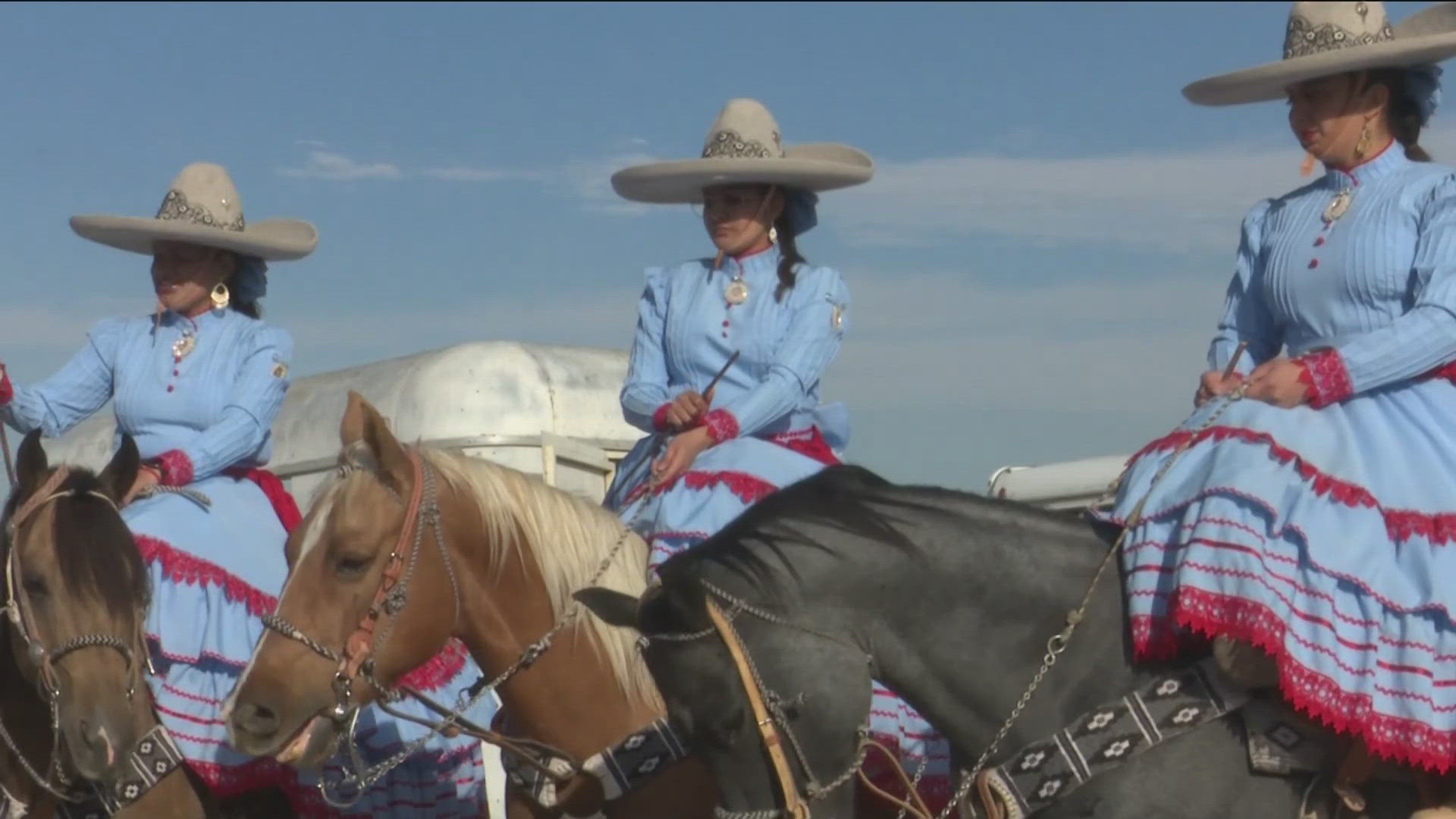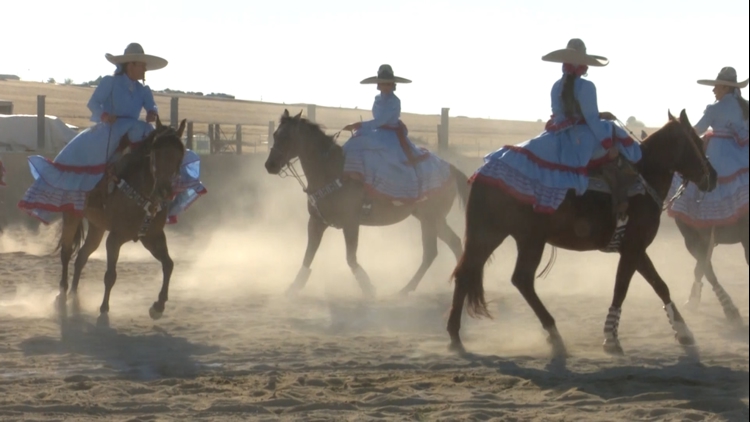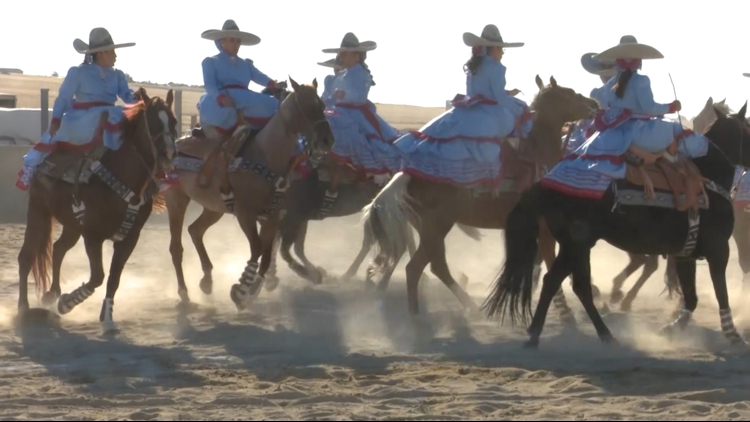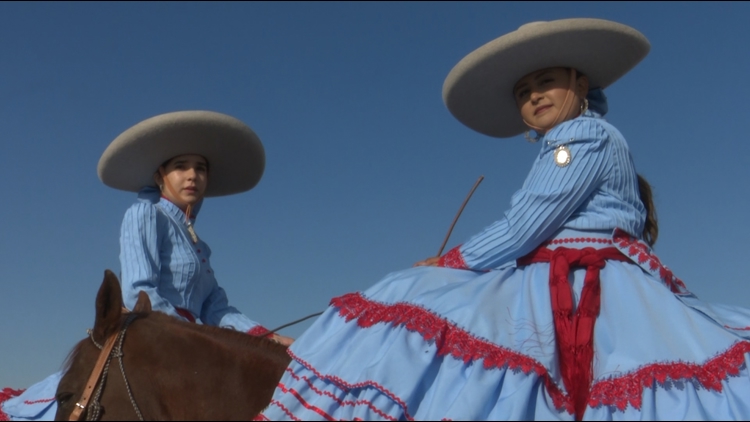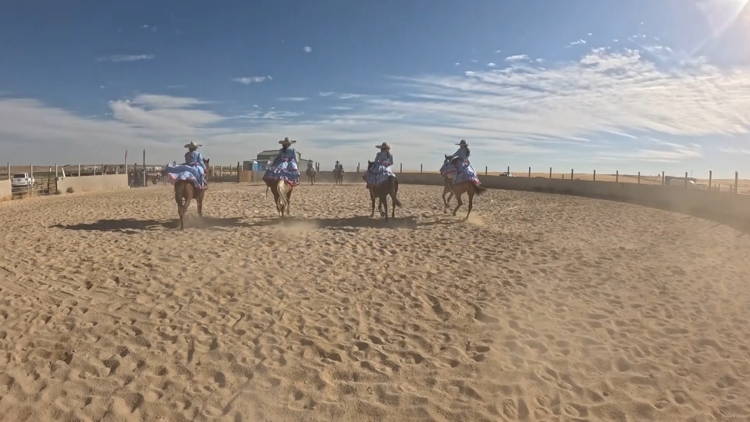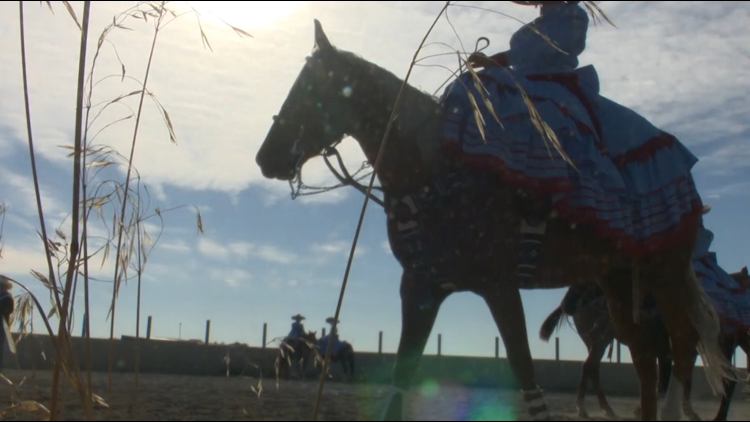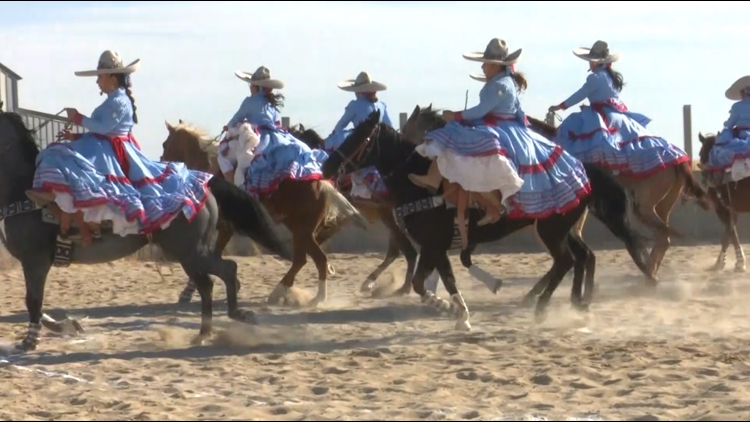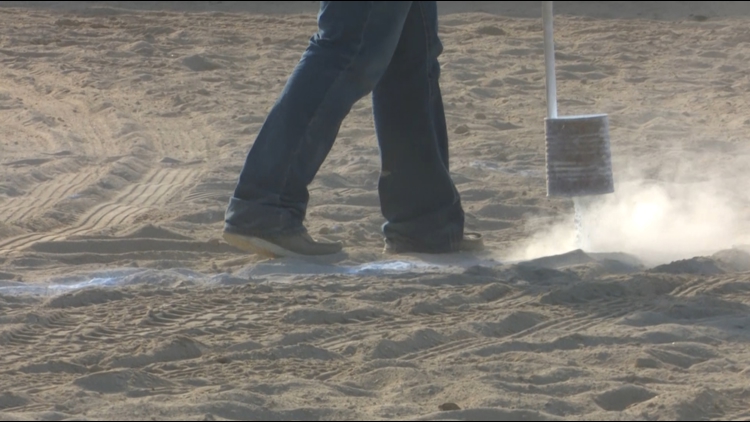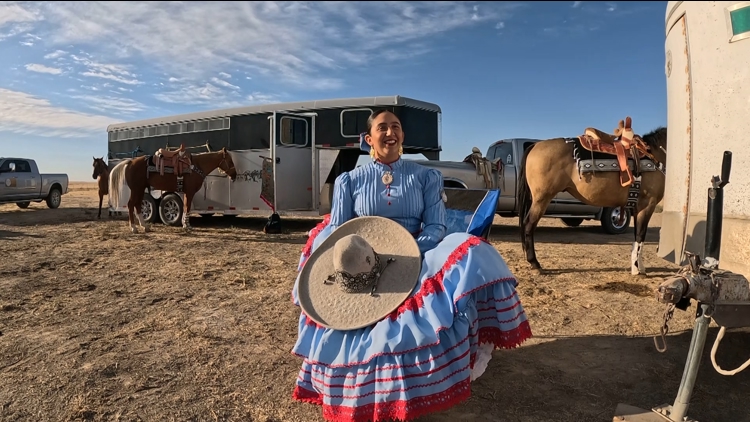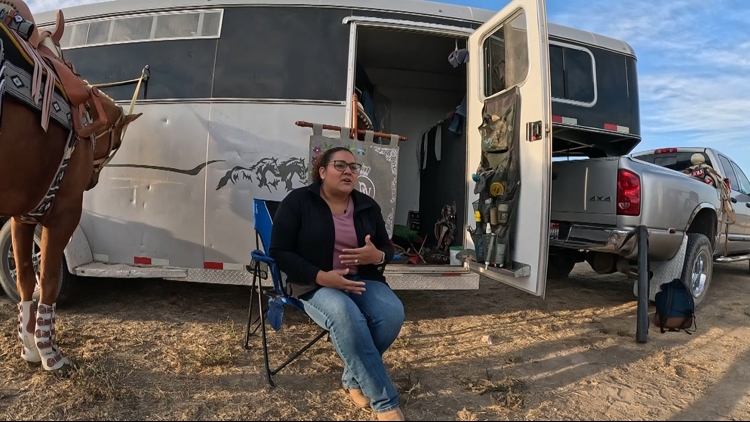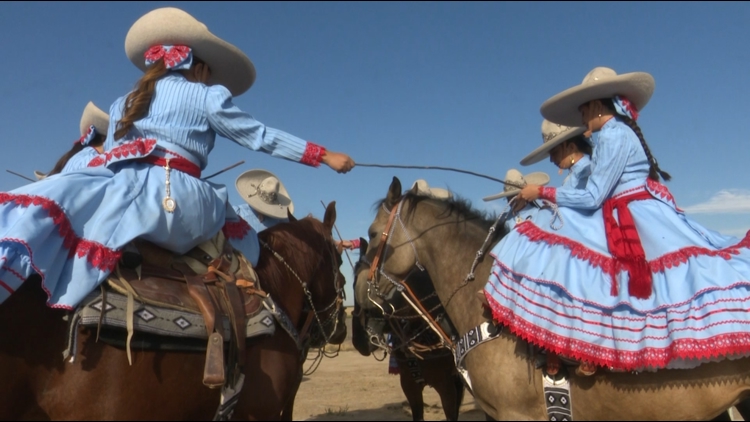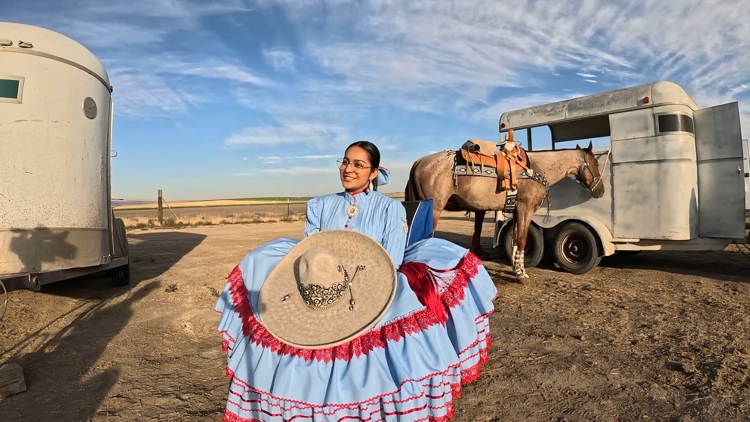NAMPA, Idaho — A sport that blends tradition and history continues to be honored in the Treasure Valley.
The art Escaramuza Charra is Mexico's national sport. It involves women athletes dressed in traditional clothing performing synchronized maneuvers while riding side saddles.

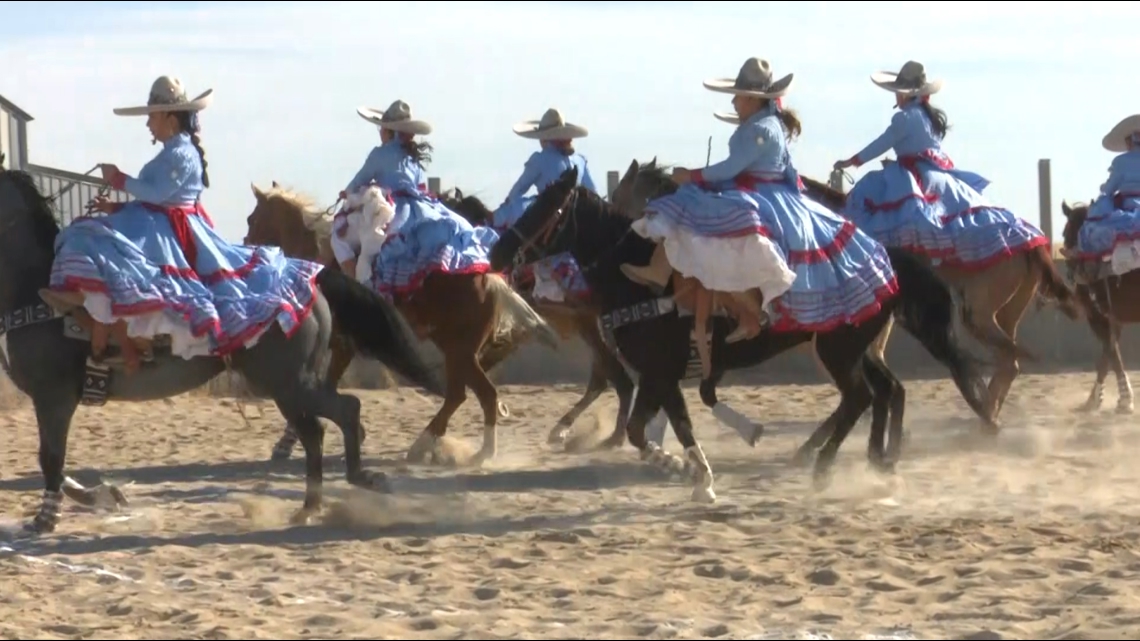
A Nampa-based team, Reinas Del Valle, has dedicated themselves to the art, and their hard work has come to fruition. Earlier this year, they competed and won a state competition, which set the path for them to compete in one of Mexico's largest competitions for the sport.
While team members are excited to compete in San Luis Potosi, they told KTVB the sport's representation of women in the past has connected them to their heritage.
"It just connects me more with my family and my roots," team captain Amelia Hernandez told KTVB.

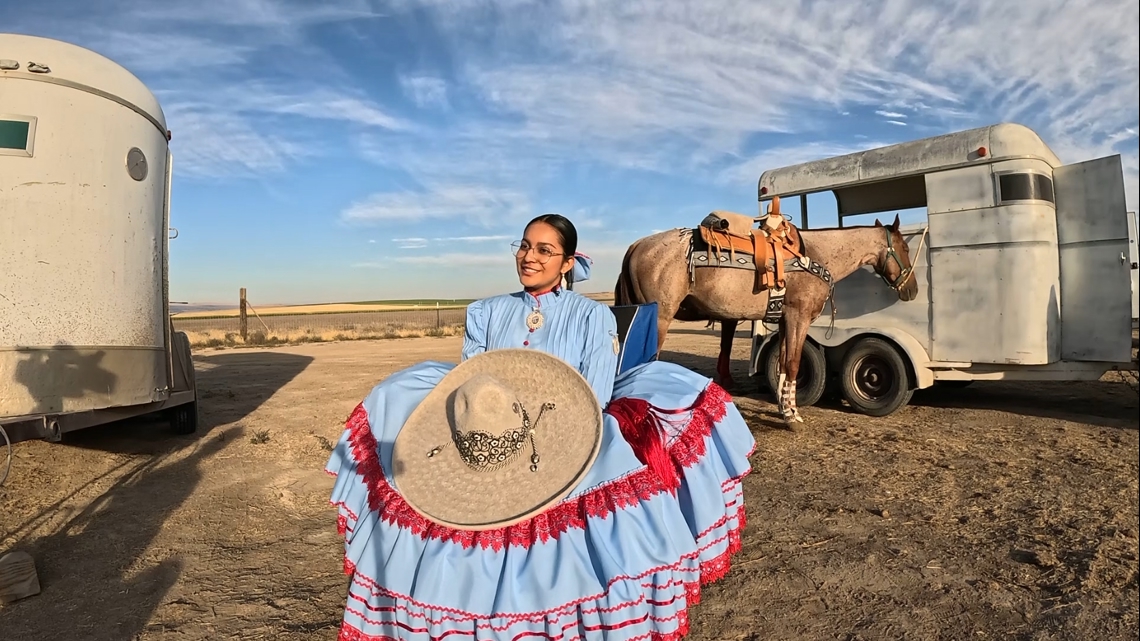
Those roots date back over a century, as Escaramuza Charra branches women fighters who fearlessly fought in the Mexican Revolution (1910-1920).
"Women distracted enemy troops to make [them] overall win. And we have the freedom that Mexico has as of right now," Amelia Hernandez said. "It shows women's empowerment. So, despite women just being put down at times, we're still here, and we're still thriving."
According to the Smithsonian, the sport of "Escaramuzas started in the 1950s but became recognized as girls-only competitive events in 1992."
The Reinas Del Valle team was founded in 2013 and includes current member Yamilex Magana.
"You feel this empowerment within your team and within yourself that you can achieve literally anything," Magana said when asked about the bond the eight women share.

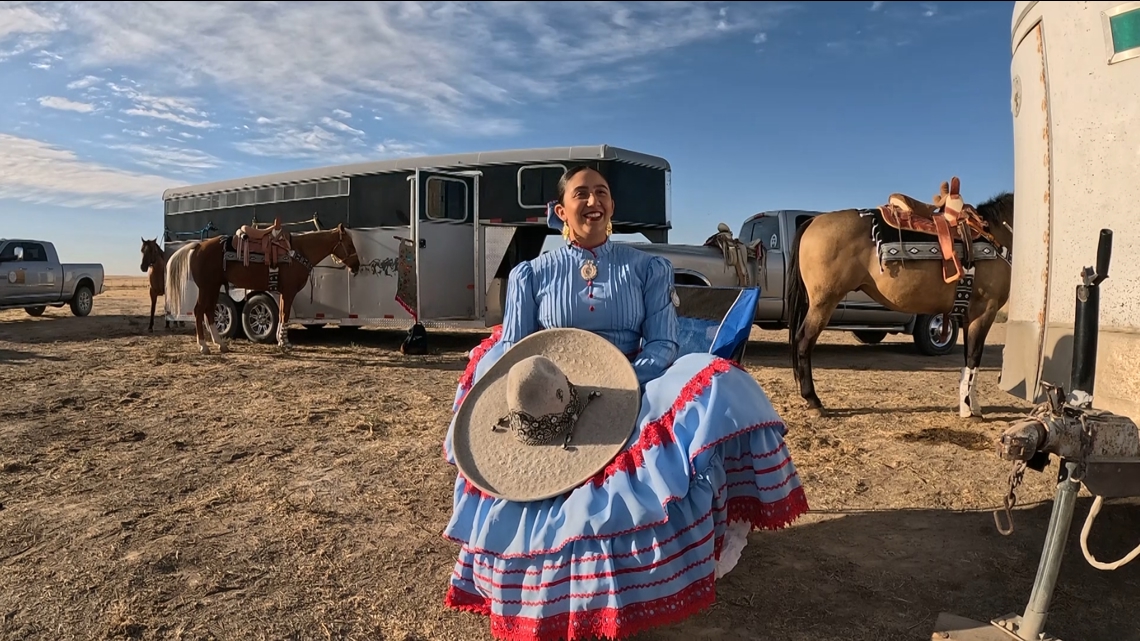
Before they enter the 'Lenzo,' or ring, the women gather in a circle and pray for each other's safety. Magana said it is because the sport—yet beautiful—is dangerous, and if they fall, the horse can injure them.
Chalk lines are shaken onto the soft ground dirt of the ring to create boundary lines the women will use for their routine.
The eight women then perform elegant, jaw-dropping maneuvers on the horse, galloping towards each other and threading the needle.
"It's so much fun, but it's very difficult as we have to control the horse with one leg," Magana said.
All these maneuvers are done while wearing vibrant rose red and baby blue dresses, which mirrors those women who fought in the war.
"I feel strong and brave, bold, empowering. You don't typically get to wear these. And so when you get to see them and you get to represent them, it's really a big definition of our culture and just like who we really are," Magana said
A message of culture that is passed down from generation to generation. As much of the team's support comes from their family.
"You can't forget where you come from," said Erica Rojero-Hernandez, mother of Amelia.

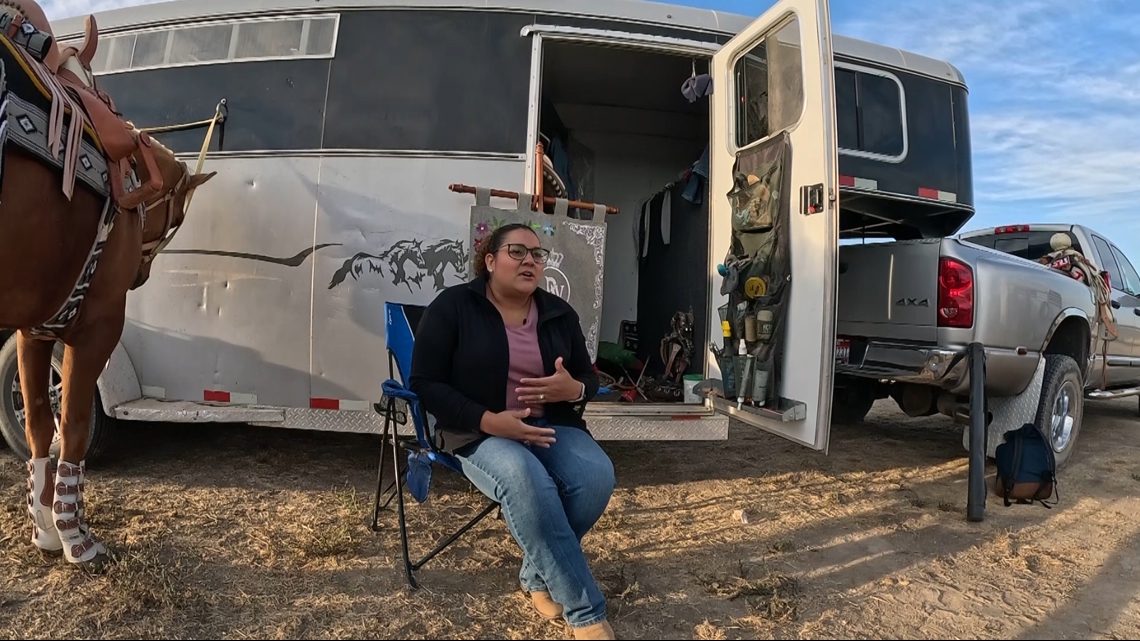
Amelia and the other team members are currently competing at the LXXX Congreso y Campeonato Nacional Charro for national recognition.
But before they left, they told KTVB that their love of the sport's connection to the past would carry them into the future.
"Getting to tell them these stories is probably going to be the best part for me," Magana said. "To my nephews and nieces, I want to be able to tell them your aunt went to Mexico to compete, and you should do it too. They will always have my support and that's, that's my goal and that's my mission, you know, to keep the tradition going."

